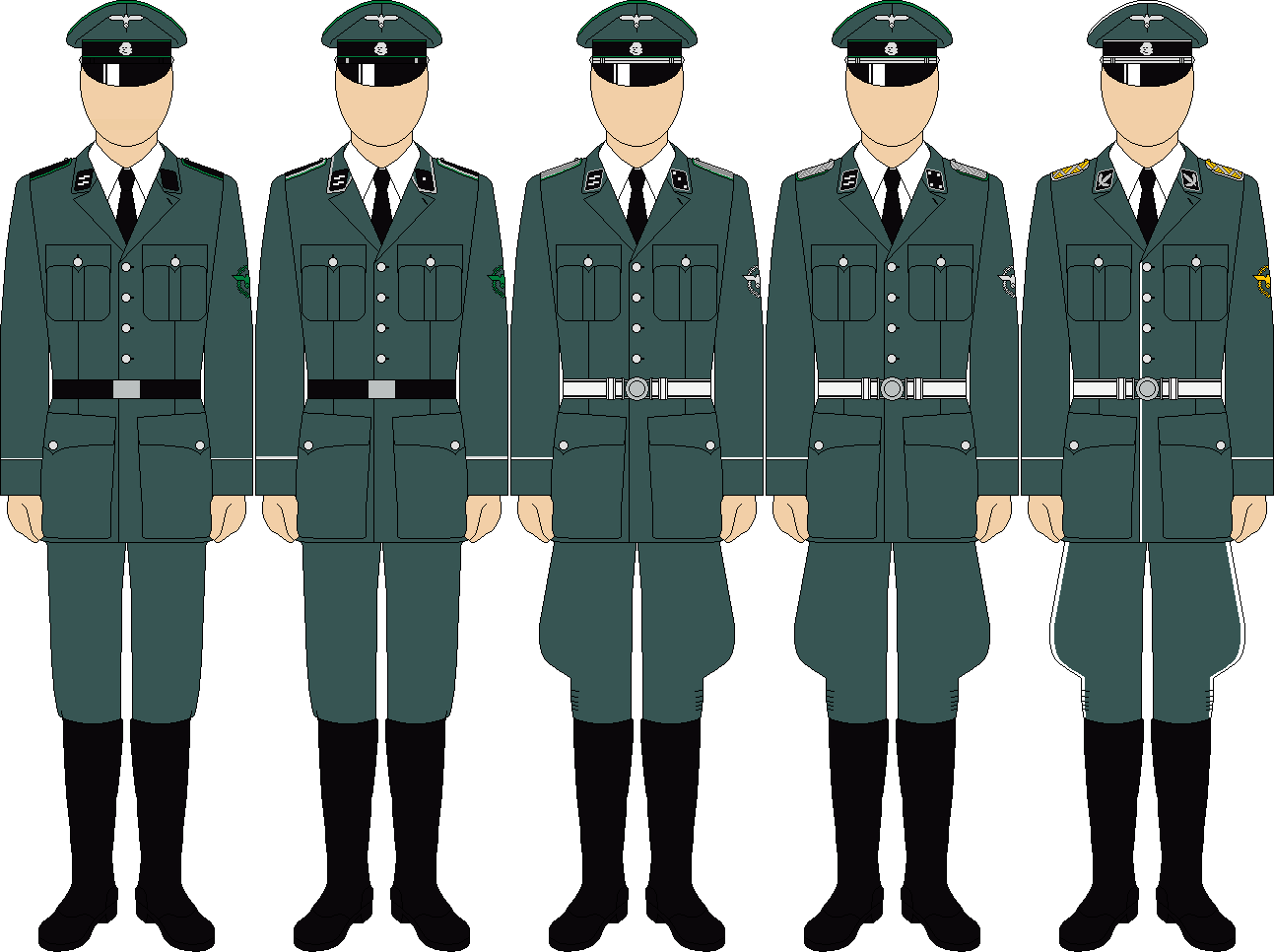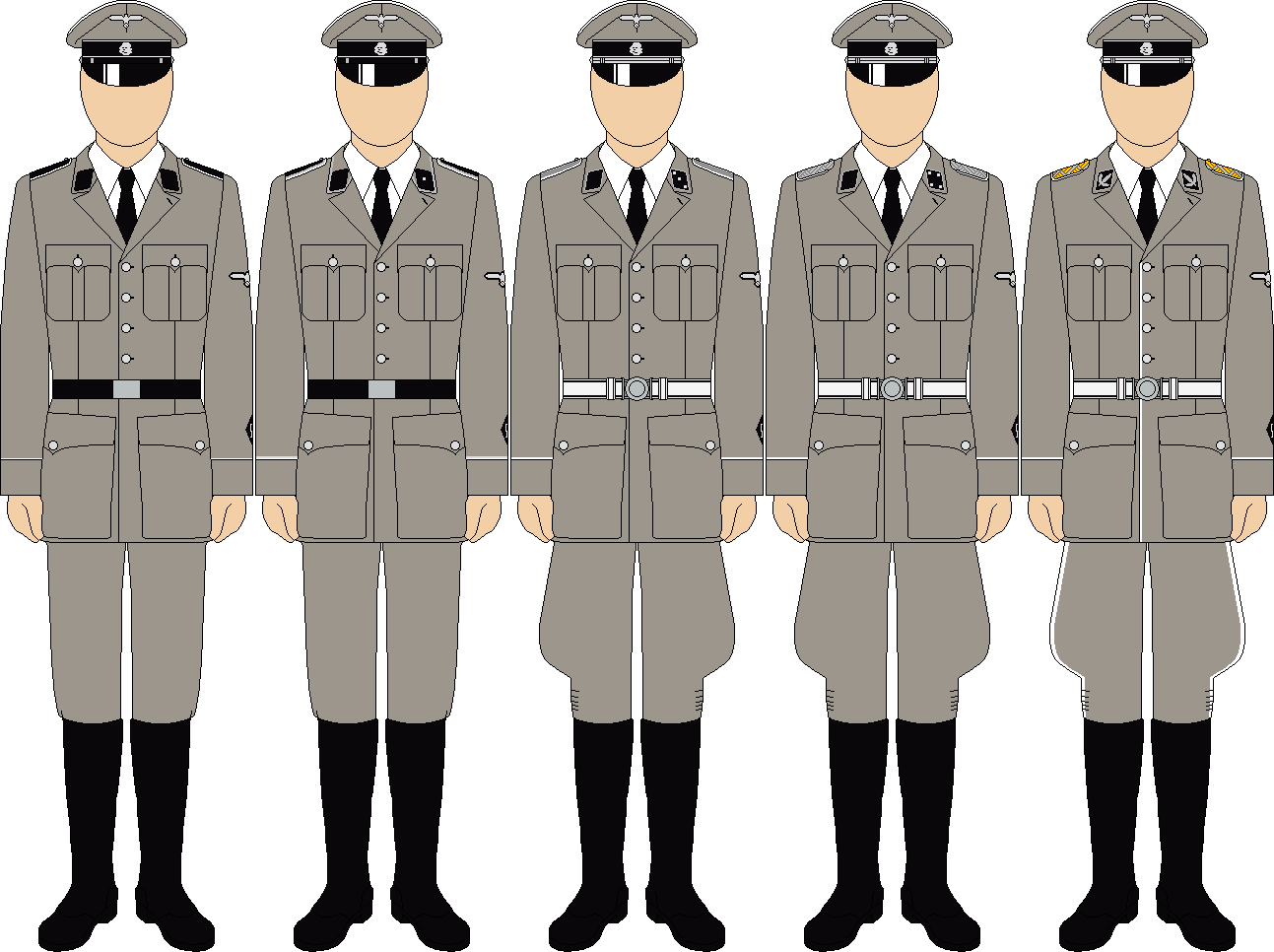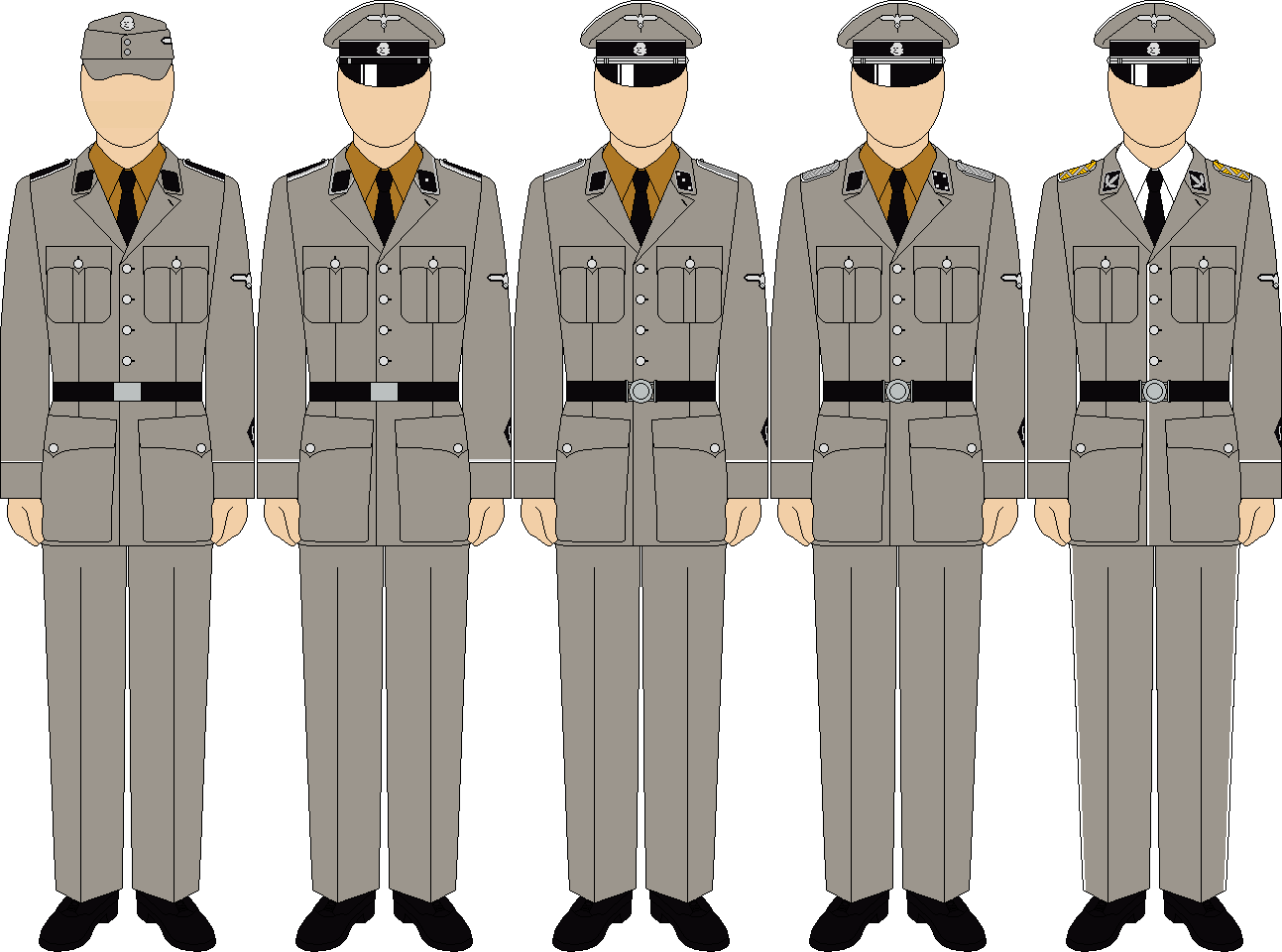The RSHA, or Reichssicherheitshauptamt (Reich Security Main Office) is an German SS organization subordinate to the Reichsführer-SS in his dual capacities as Chef der Deutschen Polizei (Chief of German Police) and Reichsführer-SS. The organization's stated duty was to fight all "enemies of the Reich" inside and outside the borders of Nazi Germany.
It is Germany's leading law enforcement and national security organisation.
Organisation[]
The RSHA has a complex, and bureaucratic organisation. Here are the main components of the RSHA:
- Amt I, Personnel and Organization
- Amt II, Administration, Law, and Finance
- Amt III, Inland-SD
- Amt IV, Geheime Staatspolizei (Gestapo)
- Amt V, Kriminalpolizei (Kripo)
- Amt VI, Ausland-SD
- Amt VII, Written Records
- Amt VIII, Ordnungspolizei (Orpo)
All officers of Amt III, Amt IV, Ant V, and Amt VI are given status as Europol officers, giving them police powers over the entire European Union
The Chief of the RSHA (who reports directly to the Reichsfuhrer-SS) has under his command several Higher SS and Police Leaders (Höhere SS- und Polizeiführer) covering several Gaue each and four Supreme SS and Police Leaders (Höchste SS- und Polizeiführer). The four Supreme SS and Police Leaders cover Ostland, Ukraine, Bohemia and Moravia, and the General Government. In addition to the German security forces, the Supreme SS and Police Leaders command local police forces, such as the Polish Police of the General Government, and the Ukrainian Police. Each Gau inside the Reich has an SS and Police Leader. An SS and Police Leader is the commander of all police and Allgemeine SS units inside his area. He reports only to his superior SS and Police Leaders, the Chief of the RSHA, and the Reichsfuhrer-SS.
Under each local SS and Police Leader is a partial replica of the national RSHA. An SS and Police Leader will command the local components of the Kripo, Gestapo and Orpo.
Sicherheitsdienst[]
The Sicherheitsdienst (Security Service) is Germany's counter-intelligence organisation, and the intelligence arm of the NSDAP. It's task is the "neutralisation of opposition and spies". Its primary role inside Germany is countering foreign intelligence agents, and countering "major opposition" to the National Socialist state. This is done by the Inland-SD (Amt III of the RSHA). The Ausland-SD (Amt VI of the RSHA) is responsible for monitoring dissidents and refugees outside Germany.
Geheime Staatspolizei[]
The Geheime Staatspolizei or Gestapo (Secret State Police) investigate dissent against the Reich. The most concise summary of the Gestapo's role is "if it's too small for the SD, its handled by the Gestapo". They deal with activist groups, Jews, and agitators. They also deal with "anti-social" behavior. The Gestapo was retrained and reorganised in the 1950s. Their previous emphasis on arrests, torture, and sending people to concentration camps was replaced with "disintegration measures". These measures were developed by Erich Mielke and drew on experience gained with the Soviet NKVD. The new measures were intended to psychologically destroy enemies of the Nazi state. The new measures would not provoke active resistance, and could be plausibly denied. "Disintegration measures" included secretly breaking into the homes of dissidents and interfering with the contents, spreading rumours, sabotaging vehicles (generally non-lethal, as lethal tampering would be investigated by the Kripo), creating compromising photos, mysterious deliveries (pornography was a favoured delivery, frequently left with neighbours). Arrest was generally reserved for the most active dissidents. These measures had the side effect of reducing the operating costs of the concentration camp system.
Kriminalpolizei[]
The Kriminalpolizei (Kripo, Criminal Investigation Police) are Germany's detective force. They usually operate in plain clothes. When in uniform, they wear standard SS uniforms with the sleeve insignia "KP". For the most part, they function as any other detective force. The Kripo investigate crimes such as rape, homicide, robbery, and fraud. Among the sexual "crimes" investigated by the Kripo are sexual relations between Germans and non-Germans.
Ordnungspolizei[]
The Ordnungspolizei (Orpo, Order Police) are Germany's uniformed police force. It consists of several specialised sub-agencies including:
- Schutzpolizei (Municipal Police): The uniformed police patrolling Germany's towns and cities.
- Gendarmerie (rural police): Assigned to small communities, rural districts, and mountainous terrain. Members of the Gendarmerie were mainly employed to combat poaching and also as Alpine troops for homeland defense.
- Verkehrspolizei (Traffic police): The traffic-law enforcement agency and road safety administration of Germany.
- Wasserschutzpolizei (Water protection police): Germany's coast guard, tasked with the safety and security of Germany's rivers, harbors, and inland waterways. It is drawn from the National Socialist Sea Corps and the NSFK.
- Polizeiflieger (Police flyers): Germany's police aviation. They operate helicopters and some fixed-wing aircraft in support of police operations. This is drawn from the NSFK.
- Grenzpolizei (Border Police): Germany's border guard.
- Bahnschutzpolizei (Railway police): Police reservists employed by the Reichsbahn. The Bahnschutzpolizei was tasked with railway safety and also preventing espionage and sabotage of railway property.
- Postschutz (Postal police): Tasked with the security of the Reichspost, which was responsible not only for the mail but other communications media such as the telephone and telegraph systems.
- Feuerschutzpolizei (Fire protection police): Germany's Fire Brigades under a national command.
- Spezialeinsatzkommandos (Special Action Commandos): Germany's special response units, equivalent to American SWAT teams.
- Bereitschaftspolizei (Alert police): Riot squads with special equipment including armoured cars.
- Strafvollzugsdienst (Prison Guard Service): Guards ordinary prisons.
- Technische Nothilfe (Technical Emergency Help): A specialist force designed to keep infrastructure operating during national emergencies.
- Zivilschutzpolizei (Civil defence): Responsible for civil defence, fallout shelters, detection of NBC attacks, and measurement of radiation and chemical contamination.
- Funkschutz (Radio guard): Protection of German broadcasting stations (radio and TV). Funded by the Reich Ministry of Public Enlightenment and Propaganda.
- Werkschutzpolizei (Factory protection): Factory security guards. These are usually employed by the company concerned, but they are commanded by the local Orpo.
Uniforms, Weapons, and Equipment[]
Uniforms[]
Ordnungspolizei[]

Ceremonial Uniform - Worn for Police ceremonies, and when policing public ceremonial occasions.

Service Dress Uniform - Worn for "office work". Also worn on patrols in certain areas. Motorcycle operators wear breeches and jackboots only.

Utility Uniform - Worn during normal operations. Protective and load bearing equipment can be worn over the uniform.
All other branches[]

Ceremonial Uniform - A diamond shaped sleeve badge shows the branch in which the wearer serves. Sicherhietsdienst members wear a badge reading "SD", Gestapo members wear a badge reading "GP", and Kriminalpolizei members wear a "KP" badge.

Service Dress Uniform
Weapons[]
German police officers generally carry the same weapons as the Army. 4 cm grenade launchers are used to fire tear gas and baton rounds. Plain clothes officers carry the P 80K pistol or the larger P 80P
Equipment[]
German vehicle brands such as VW, Audi, Mercedes Benz, and BMW are preferred by the Police. German police forces outside Germany also use non-German vehicles, locally-designed Skoda vehicles in the Protectorate, or FIATs built in Poland by PZInż. The Verkehrspolizei favour high-performance BMW 5-series sedans and motorbikes for policing Germany's Autobahnen. The Eurocopter Ec 135 is beginning to replace the older Bolkow Bo 105. Mercedes Benz G Class four wheel drive vehicles are the favoured vehicles of the Border Police, and the Gendarmerie.